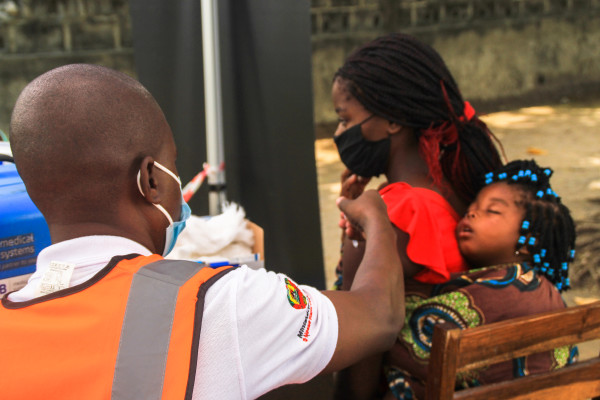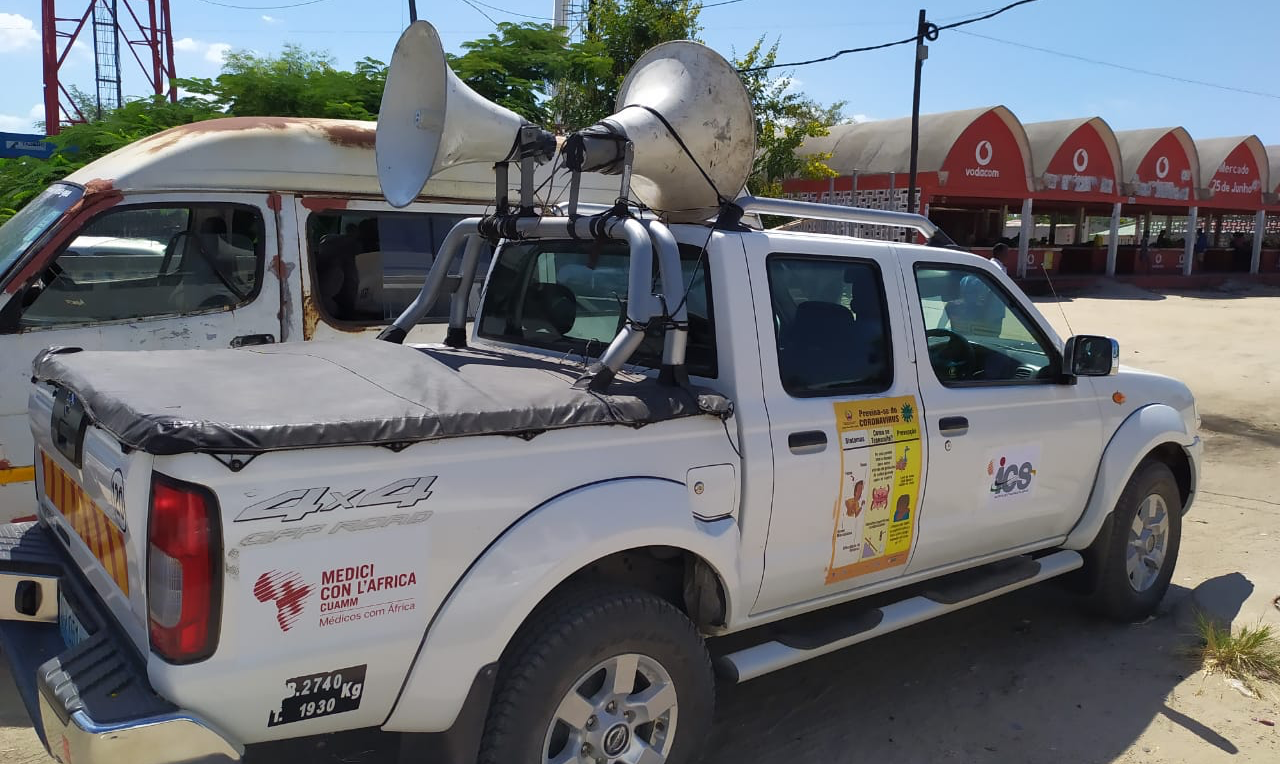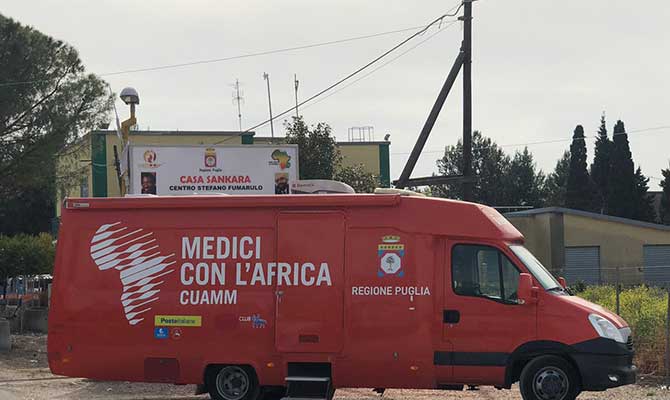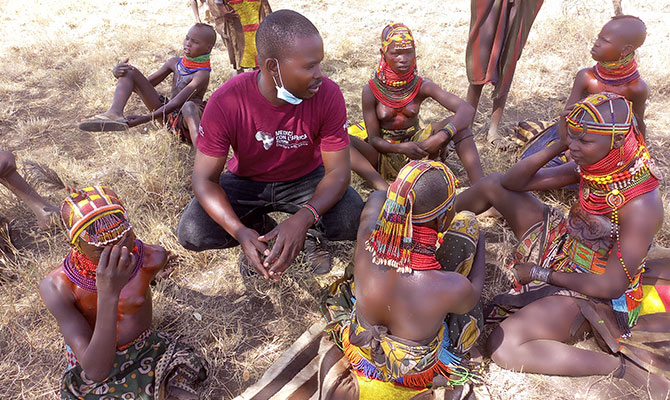São Josè de Munhava is a key hub, set in one of the most densely populated neighborhood in the city of Beira, Mozambique. To surprise us the most is not only the amount of people queuing to receive the vaccination on a ordinary Monday, but the silence and the attention everybody is paying to indication provided by activists. At the entrance, women, men and the young are patiently waiting for their turn. On the other side of the aisle, a priority line was set to attend pregnant women and mothers. They are many, and young. The most vulnerable, the disabled, appear to be missing. Suddenly, a chopela (a traditional three-wheel motorbike) approaches to the gazebo tent where people are being vaccinated. On board there is a woman in her 50s.
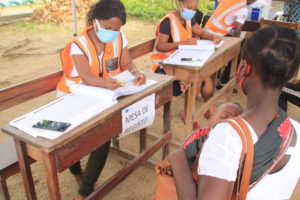
She is not moving, she can barely return our greetings. She is with a man, her husband. «Rosa Antonio is her name. And I am João Antonio. She is my wife, and I am her husband. We are a couple but also cousins», he says while she receives the injection. João came with Rosa, he is actually fully vaccinated but came here a few days ago to know how his wife who walks with difficulty, might have received the second dose. «They said that had I had the chance to take her here, she would have jumped the queue». Rosa and João had the opportunity to get to the vaccination centre by their own means which is anything but common here. «Not everyone can take a chopela but we cannot leave anyone out. Working alongside with provincial authorities we can organize a transfer for people in need or, when doable, we send a health professional to them», says Rosa, 26 years-old, Cuamm activist since 2015. This is a complex system which first level is represented by the county directorate where vaccines arrive every morning and are then distributed to vaccination centres according to data on population density and participation in immunization. Data collection is part of the system. Official forms are filled in with information such as age and gender but also vulnerable people: disabled, pregnant women, displaced people e people with comorbidities. Estevão is responsible for the data collection and he explained to us the importance of such activity: «it is a key work in vaccine distribution because based on these data, county directorate distributes the doses ensuring every centre the right amount of stock and avoiding any waste». The vaccination campaign supported by Doctors with Africa Cuamm goes on here in São Josè where behind it all there is a close collaboration with local authorities.
This project was made possible by the support of many: institutions, companies and civil society who believe in the importance of this goal. Special thanks to the European Union and Assindustria Veneto-Centro with its associated companies, to Rachelina Ambrosini Foundation and to all those who will join us and take on this challenge!

